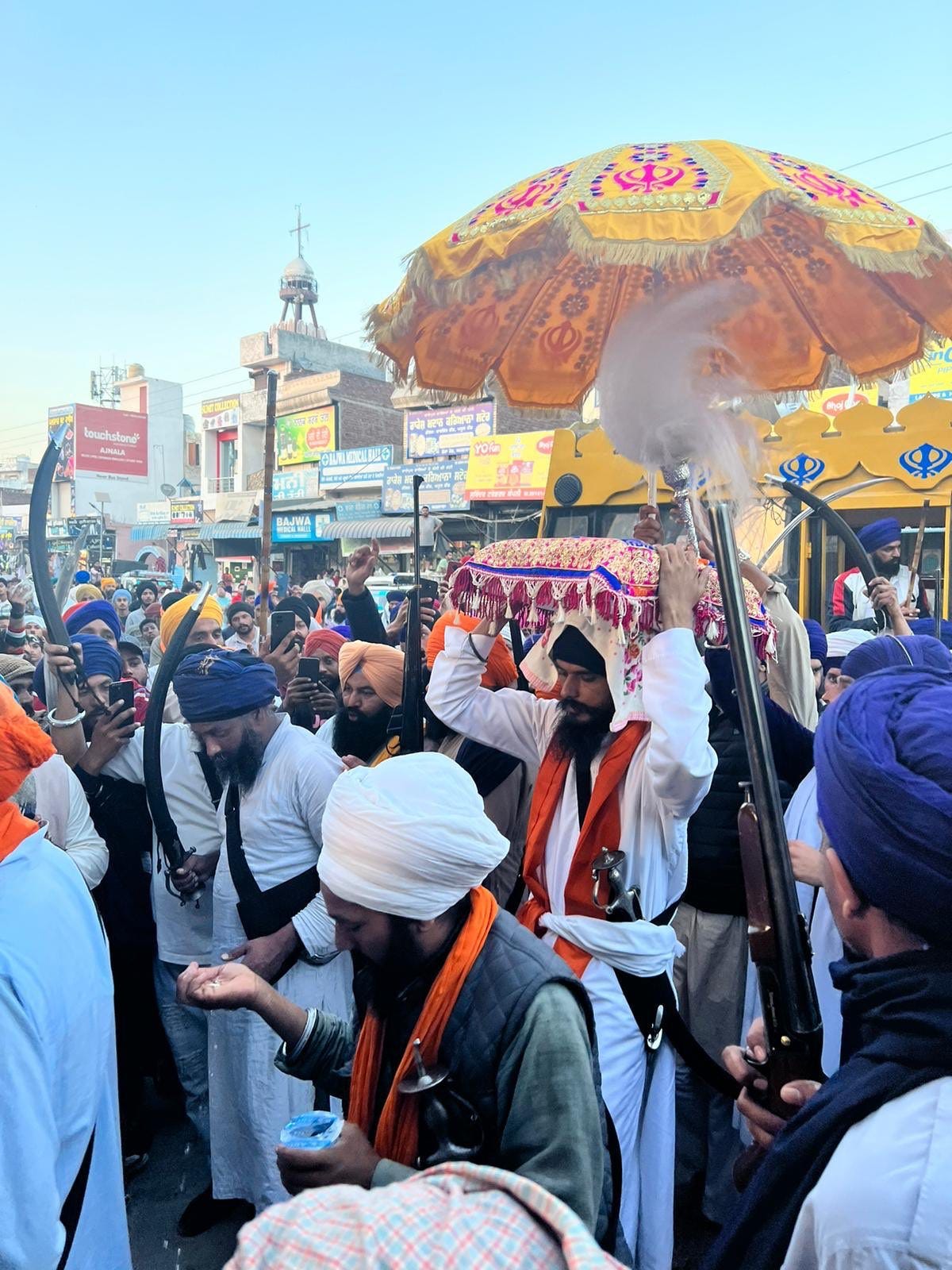Sarrohhi Kaur: Take Pride In Sikh Courage & Self Respect Displayed At Ajnala
"When an event of such magnitude takes place in Panjab, it should never be interpreted as an isolated incident, disconnected from a larger history."
Sarrohhi Kaur
February 25, 2023 | 3 min. read | Opinion
"This was long overdue" - a sentiment I have been hearing again and again as we speak about the face-off between Sikhs, led by Amritpal Singh, and Punjab Police at Ajnala station near Amritsar.
When an event of such magnitude takes place in Panjab, it should never be interpreted as an isolated incident, disconnected from a larger history. The fearlessness of Sikhs that day, in reaction to another arbitrary arrest of an activist, roots back to decades of injustice and oppression that Sikhs have been subjected to and continue to fight against.
Despite heavy police personnel restricting free access to Ajnala, Sikhs courageously marched towards the Police Station in large numbers to free another from state heavy handedness.
It is a darkening of the lines of hostility and mistrust that Sikhs have for all the "justice-serving" institutions of the Indian system.
It was not a single arbitrary arrest which triggered the anger displayed a few days ago. The frustration is layers built upon a consistent pattern of oppression against those who dare to call out injustices.
Where are the national media and political concerns for "law and order" in Punjab when the state acts extrajudicially and arbitrarily against Sikhs? The Indian tears for Ajnala quickly go dry when Sikhs bring up Bandi Singhs, those Sikh political prisoners lingering in jails without grounds or well past their release dates. A reality that would make any other so called democracy ashamed.
Yesterday was a show of strength. That the siege Sikhs have felt for years was set aside, seeking justice on their own terms.
India was reminded of Sikh dominance.
When the reporter Jagtar Singh from BBC News said on television that Sikhs essentially no longer fear the Indian state, a famous line from Frantz Fanon came to mind.
"Violence is a cleansing force. It frees the native from his inferiority complex and from his despair and inaction; it makes him fearless and restores his self‑respect."
Everything including the gathering of Sikhs under the call of Bhai Amritpal Singh, the peaceful march towards the police station with the Shri Guru Granth Sahib Ji, the eventual takeover of the station, the announcing of the Amrit-Sanchar, the dialogue with the Panjab Police, state authorities admitting they lacked evidence and grounds to detain Toofan Singh, the many interviews of Amritpal Singh afterwards, all presented a bold new reality Indians cannot grasp.
In face of a new forming paradigm, state narratives turned to spreading false propaganda about the use of the Shri Guru Granth Sahib as a "sheild" during the march to Ajnala.
A protester shared with me that "when we were walking, we did not think that there would be barricades and scuffles ahead. The barricading was fifty to hundred meters away from the police station. Singhs were in front of the bus in which there was Guru Granth Sahib, and when they started entering (police lines), Palki Sahib stayed there, and Singhs went (forward) to the police station. Then the police attacked Singhs, and we retaliated. It created a narrative that Guru Sahib was used as a shield. While there was nothing like that in sight."
As Shamsher Singh put it well, "it is true that Guru Sahib has been at every morcha; politicians have tried to confine Guru Sahib to self-serving notions of the sacred before. The images of a Palki Sahib at what was essentially a siege are unique. On the point of sacredness, politicians use this to confine Sikhs, when we know Guru Sahib was imprisoned, attained shahadat, went into war, and celebrates war and Shaheedi. Sikh notions of sacredness differ from how the media/state likes to interpret that."
In the end, Sikhs understand the genocidal impulses of India and the manner in which it treats minorities. The only way to stand against it is without fear. Ajnala is only an example of how Sikh defiance can look, a small chapter in a much longer history and story.
Sarrohhi Kaur is a student who studies the assimilation processes, violence as political discourse. You can find her on Twitter at @sarrohhii.
Baaz is home to opinions, ideas, and original reporting for the Sikh and Punjabi diaspora. Support us by subscribing. Find us on Twitter, Instagram, Facebook, and TikTok at @BaazNewsOrg. If you would like to submit a written piece for consideration, please email us at editor@baaznews.org.


